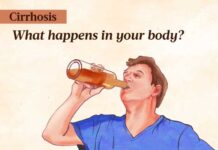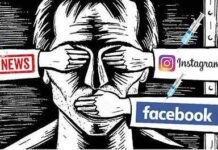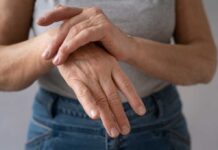
You may have heard that drinking milk helps with heartburn. Or maybe your aunt swears that eating a slice of bread is the quickest way to provide relief from that prickly sting.
But when the burning sensation starts, do home remedies actually work?
Nope, according to Dr. Patrick Hyatt, M.D., a specialist at The Center for Heartburn and Reflux Disease at Mercy Medical Center in Baltimore. They’re just old wives’ tales, and they might make your heartburn worse.
Heartburn occurs when stomach acid—the fluid that’s produced when you eat to kill bacteria—backs up into your esophagus, Dr. Hyatt says.
It’s often triggered by consuming acidic foods, like wine, coffee, or spicy meals, he explains. The acids in those foods combine with your stomach acid, resulting in an extra potent mixture that burns if it seeps into your esophagus.
Overeating can also prompt heartburn, says Dr. Hyatt. When you’re stuffed to the point of bursting, your stomach contents press against your esophageal sphincter, which can cause the mixture to leak through.
In either of these cases, eating extra bread or milk would only add to the bulk in your belly and prompt your body to produce more stomach acid, Dr. Hyatt says.
So what does work?
Your drugstore is stacked with options, but Dr. Hyatt says the quickest relief comes from over-the-counter histamine blockers like Pepcid or Zantac.
Those drugs work by blocking histamine, a chemical that triggers the production of stomach acid, he says. They can provide relief in 15 to 30 minutes, according to the drugs’ websites.
Ideally, you wouldn’t suffer from heartburn in the first place.Here’s how to prevent it:
Identifying common triggers, according to information from Harvard Medical School. To do this, pay particular attention to how you feel after eating foods that are spicy, high in fat, or include garlic or tomatoes. Beverages such as milk, coffee, peppermint, chocolate, carbonated drinks can also cause reflux.
If you do eat problematic foods, pop a piece of non peppermint gum after, advises Harvard Medical School. This increases salivation to neutralize acid and alleviates esophageal discomfort.
Eating lat at night can also cause heart burn, says Gastroenterologist Dr. David Poppers, MD, PhD and associate professor at NYU Langone Medical Center. He recommends waiting roughly two hours to sleep after eating. And when you do get some rest, sleep in an elevated position. This helps prevent acid from traveling up the esophagus, he says.
If you get heartburn more than twice a week, tell your doctor, Dr. Hyatt says. Frequent heartburn can increase your risk for esophageal cancer, but your doctor can monitor your symptoms and give you preventative treatment if necessary.
Important Notice: This article was originally published at www.menshealth.com by Ali Eaves and Melissa Matthews where all credits are due.
Disclaimer
The watching, interacting, and participation of any kind with anything on this page does not constitute or initiate a doctor-patient relationship with Dr. Farrah™. None of the statements here have been evaluated by the Food and Drug Administration (FDA). The products of Dr. Farrah™ are not intended to diagnose, treat, cure, or prevent any disease. The information being provided should only be considered for education and entertainment purposes only. If you feel that anything you see or hear may be of value to you on this page or on any other medium of any kind associated with, showing, or quoting anything relating to Dr. Farrah™ in any way at any time, you are encouraged to and agree to consult with a licensed healthcare professional in your area to discuss it. If you feel that you’re having a healthcare emergency, seek medical attention immediately. The views expressed here are simply either the views and opinions of Dr. Farrah™ or others appearing and are protected under the first amendment.
Dr. Farrah™ is a highly experienced Licensed Medical Doctor certified in evidence-based clinical nutrition, not some enthusiast, formulator, or medium promoting the wild and unrestrained use of nutrition products for health issues without clinical experience and scientific evidence of therapeutic benefit. Dr. Farrah™ has personally and keenly studied everything she recommends, and more importantly, she’s closely observed the reactions and results in a clinical setting countless times over the course of her career involving the treatment of over 150,000 patients.
Dr. Farrah™ promotes evidence-based natural approaches to health, which means integrating her individual scientific and clinical expertise with the best available external clinical evidence from systematic research. By individual clinical expertise, I refer to the proficiency and judgment that individual clinicians acquire through clinical experience and clinical practice.
Dr. Farrah™ does not make any representation or warranties with respect to the accuracy, applicability, fitness, or completeness of any multimedia content provided. Dr. Farrah™ does not warrant the performance, effectiveness, or applicability of any sites listed, linked, or referenced to, in, or by any multimedia content.
To be clear, the multimedia content is not intended to be a substitute for professional medical advice, diagnosis, or treatment. Always seek the advice of your physician or other qualified health providers with any questions you may have regarding a medical condition. Never disregard professional medical advice or delay in seeking it because of something you have read or seen in any website, video, image, or media of any kind. Dr. Farrah™ hereby disclaims any and all liability to any party for any direct, indirect, implied, punitive, special, incidental, or other consequential damages arising directly or indirectly from any use of the content, which is provided as is, and without warranties.








